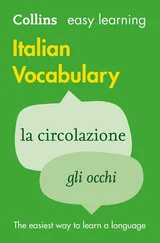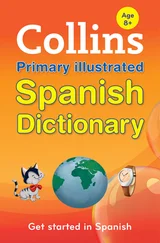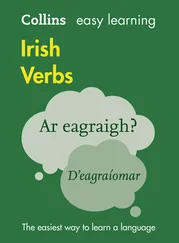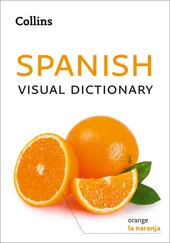1 ...8 9 10 12 13 14 ...18 To say what you have to do, you can use tengo que( I have to ) followed by an infinitive. tengocomes from the verb tener( to have ). For more information on tener, see here.
| Tengo quecoger otro vuelo para ir a Bilbao. |
I have toget a connecting flight to get to Bilbao. |
| Tengo quecomprar un chaleco reflectante. |
I have tobuy a high-visibility vest. |
| Tengo quecoger el tren de las 8.30. |
I have tocatch the 8.30 train. |
| Tenemos quehacer una reserva. |
We have tomake a reservation. |
| ¿ Tenemos quecambiar de tren? |
Do we have tochange trains? |
Another way to say what has to be done is to use the expression hay que( you have to or we have to ).
| Hay queenseñar el carnet de conducir. |
You have toshow your driving licence. |
| Hay queimprimir el billete electrónico. |
You have toprint out your e-ticket. |
| Hay quedevolver el coche antes de las tres. |
We have toget the car back before three. |
If you want to say what you should do, you can use deberíafollowed by an infinitive. deberíacomes from the verb deber. For more information on deber, see here.
| Deberíacomprar mi billete por Internet. |
I shouldbuy my ticket online. |
| Deberíamosechar más gasolina. |
We shouldget some more petrol. |
| Deberíamosir a recoger el equipaje. |
We ought togo and pick up the luggage. |
Here are some key phrases you are likely to be given when you are travelling around.
| El tren de Cáceres sale de la vía tres. |
The train for Cáceres is leaving from platform three. |
| ¿Puedo ver su billete? |
Can I see your ticket? |
| ¿Le importa que me siente aquí? |
Do you mind if I sit here? |
| Es mejor que coja un taxi. |
You’d be better getting a taxi. |
| Cuando llegue a la plaza pregunte allí. |
Ask again when you get to the square. |
| Siga recto hasta el semáforo. |
Go straight on till you get to the traffic lights. |
| Coja la primera calle a la derecha. |
Take the first turning on the right. |
| Gire a la izquierda. |
Turn left. |
| Está muy cerca. |
It’s very near. |
| Está enfrente del museo. |
It’s opposite the museum. |
| Se puede ir andando. |
It’s within walking distance. |
| Está a tres paradas de aquí. |
It’s three stops from here. |
Lifestyle Tips
• Spaniards are expected to carry identity cards at all times, so they take it for granted that anyone might need to prove their identity. Be prepared to present your passport when checking into a campsite or going to a hotel. You may be asked: ¿Su carnet?( Your ID card, please ) or ¿Su pasaporte?( Your passport, please ). As you’ll need to carry your passport with you, don’t forget to keep it in a safe place.
• If you’re in charge of a car, be ready to produce your driving licence if asked for it by the police. If you’ve left it behind, you may well be fined. The police officer might ask you: ¿Me deja ver su carnet de conducir?( Can I see your driving licence? ).
• When planning your journey, remember that in Spain autopistas( motorways ) are often toll motorways. Every so often you will come to a peaje( toll barrier ) where you will be required either to take a ticket or to hand over some money. When paying, you’ll need to choose a lane marked manualif you haven’t got the exact change or you aren’t paying by card. Otherwise, you can go into an automáticolane. Nowadays, there are also Telepeaje( teletoll ) lanes identified by a sign showing a white Ton a blue background. These are for cars fitted with a chip allowing journeys to be tracked and paid for automatically.
• Queues tend to be informal in Spanish-speaking countries. So if you’re at the bus stop or trying to get to an information desk and don’t know who’s last in line, just ask ¿Quién es el último?( Who’s last in the queue? ).
• If there’s no timetable at the bus stop, you can ask people waiting if they’ve seen your bus go past. Just ask ¿Ha pasado el número 33?( Has the number 33 been yet? ).
Home from home
¡Que descanses! – Sleep well!
If you’re going to stay in a Spanish-speaking country, the phrases in this unit will help you find the sort of accommodation you want (hotel, hostel, self-catering, or a flat to rent) and ensure everything remains to your satisfaction when you’re there. We’ll also give you a few tips on what the receptionist or your landlord or landlady may say to you.
When looking for somewhere to stay, for instance in the local tourist office, you’ll want to specify the type of accommodation you’re looking for. The way to say this is busco( I’m looking for ), from the verb buscar.
| Buscoun hotel que no sea demasiado caro. |
I’m looking fora hotel which isn’t too expensive. |
| Buscoun hotel de tres estrellas. |
I’m looking fora three-star hotel. |
| Estamos buscandoun camping. |
We’re looking fora campsite. |
| Estamos buscandouna casa que sirva para una familia de seis miembros. |
We’re looking fora villa suitable for a family of six. |
| Necesitoun hotel que esté cerca del palacio de congresos. |
I needa hotel that’s near the conference centre. |
| Necesitoalgún sitio desde el que se pueda ir andando a las tiendas. |
I needsomewhere that’s within walking distance of the shops. |
| Necesitoun piso para un mes. |
I needa flat for a month. |
| Necesitaun hotel donde hablen inglés. |
She needsa hotel where they speak English. |
To say what kind of room you’d like, how long you want to stay and so forth, you can use quieroor quisiera( I’d like ). They are both from the verb querer. For more information on querer, see here.
| Quieroreservar una habitación doble para dos noches. |
I’d liketo book a double room for two nights. |
| Quierocambiar de habitación. |
I’d liketo change rooms. |
| Quieroque me devuelvan el dinero. |
I wanta refund. |
| Queremosquedarnos una noche más. |
We’d liketo stay another night. |
| Queremosalquilar un piso en el centro de la ciudad. |
We’d liketo rent a flat in the centre of town. |
| Quisierauna habitación con balcón. |
I’d likea room with a balcony. |
¿LO SABÍAS?
Читать дальше
